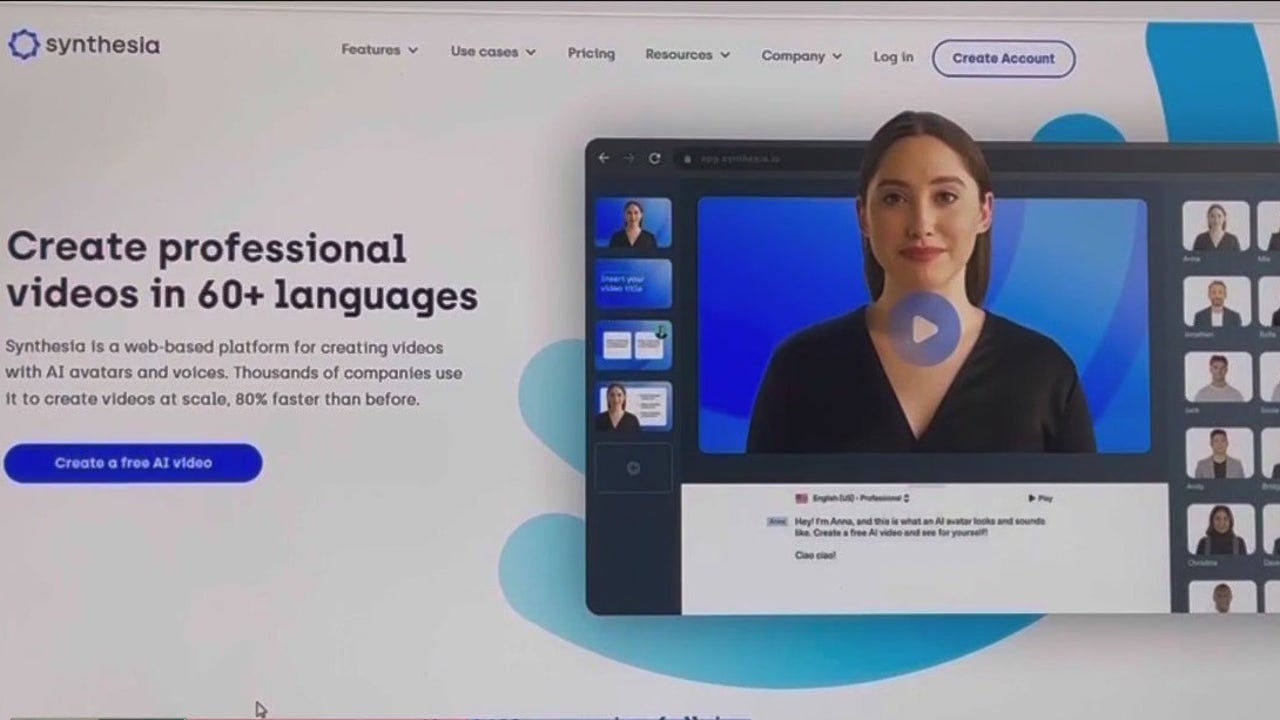
AI becoming threat to jobs
Artificial intelligence is moving from the headlines to the workplace. FOX 26 Business Reporter Tom Zizka reports on the growing expectations that AI could replace a lot of jobs real people depend on.
<!–>
HOUSTON – Artificial Intelligence is moving from the headlines to the workplace. For many, AI became a topic of conversation when the open-source chatbot ChatGPT was introduced. But AI has been in development, and working its way into our lives, for decades. Now, say a growing number of warnings, it’s coming for our jobs.
–>
The applications for AI are only limited by the imagination, as we demonstrated an artificial intelligence video creator that creates training and marketing presentations with customizable digital presenters, who can speak a variety of languages. Camera-ready is not necessary, as the computer will read the script.
AI: Biden signs sweeping executive order on artificial intelligence development
<!–>
It doesn’t stop there: AI chatbots already run many online customer service centers. Last Fall, Frontier Airlines got rid of human customer service, telling investors they were “inefficient and expensive.”
–> <!–>
A new analysis of jobs identified as ‘replaceable’ by AI, and the numbers of those jobs in each state, finds a lot may be vulnerable. In Texas, more than four million positions could be lost, say researchers, second only to California.
–>
Business strategist Mike Topa believes AI is still in its infancy, and, perhaps, not quite ready to replace all those jobs. “There’s certainly automation opportunities, whether they’re specific to AI or not, that will drive some job losses,” he says, “But I’m a little skeptical of the number.”
<!–>
Employers may have different ideas. A ResumeBuilder.com study found 44% of companies expect to replace, at least, ‘some’ people with AI in the coming year. Most at risk are analytical, technical, data-entry, and writing-type jobs. More calming voices suggest there is an opportunity for people to learn to work ‘with’ the new reality.
–>
FOX 26 Houston is now on the FOX LOCAL app available through Apple TV, Amazon FireTV, Roku, Google Android TV, and Vizio!
<!–>
“It may not affect you directly, but particularly those that we call ‘professional jobs’, those the ones that are most at risk,” says Topa, “Here’s an opportunity to become better, smarter at what you do, and bring a value to the company which helps in your position; helps your retention opportunities.”
–>
Another analysis of how Artificial Intelligence may function in the workplace found just 4% of jobs had zero tasks that could be assisted by the technology; jobs such as athletes, barbers, carpenters, roofers, and painters. For everybody else, the brave new world may become a question of whether AI can replace or complement us.